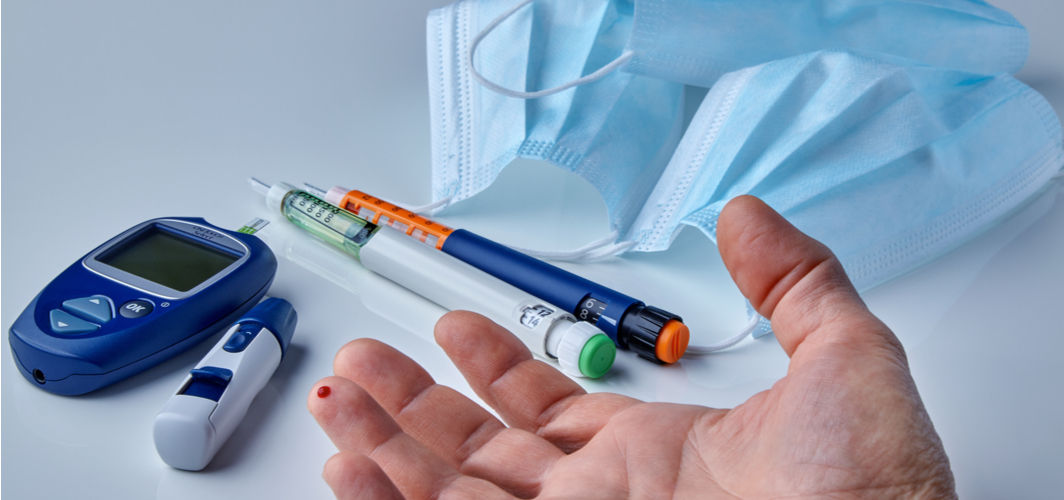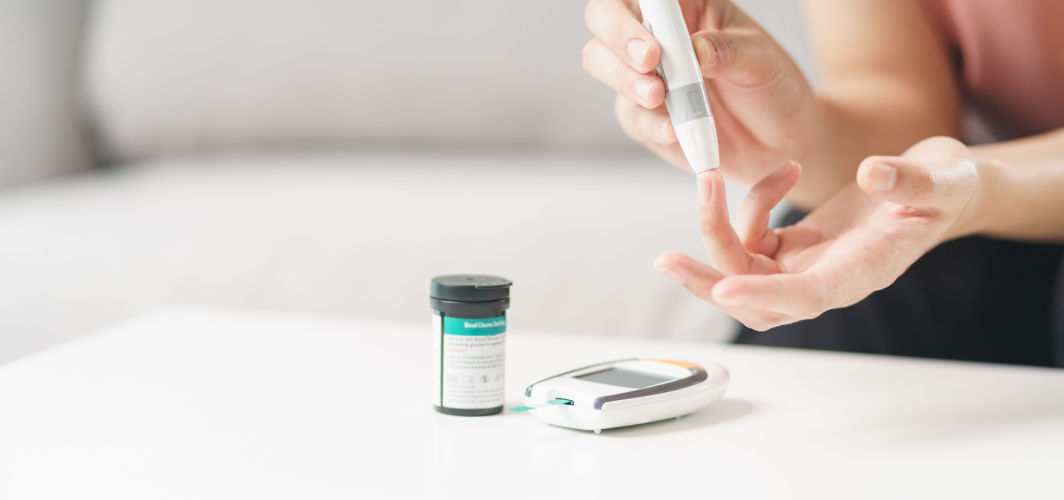Diabetes Management
Useful Tips for Diabetics Taking up Long-distance Running
4 min read
By Apollo 24/7, Published on - 23 November 2020, Updated on - 13 September 2023
Share this article
0
6 likes

Tips for diabetic people running a marathon
- Blood sugar levels must be checked before running a marathon. If the reading is <100 mg/dL before running, they must consume at least 30g of carbohydrates to prevent the incidence of hypoglycemia. And if the reading is >250 mg/dL, they need to wait for the blood sugar to drop below 250 mg/dL.
- They must carry glucose tablets or energy gels so they can boost their energy and glucose level, every five or six miles.
- Marathon runners with blood sugar problems must keep in mind another essential aspect - hydration. But consuming too much liquid can make digestion harder. Hence, frequent hydration in small amounts is considered best during marathons.
- It is good for diabetics to have a running companion who can administer first-aid when their blood sugar drops drastically.
- People with high blood sugar must carry their medical ID during the run, or at least a card with the name and the contact details of a friend or a relative. The card should also state that the person has diabetes.
- People with diabetes should avoid exercise if they are sick or have an infection.
- Diabetics must be cautious during physical exertion. They should slow down or stop the exercise if they experience dizziness, fainting, nausea, fatigue, or loss of muscle control.
- People with diabetes must reduce their long-acting insulin in the morning.
- Diabetes patients must carry a carbohydrate snack with them each time they run, to avoid a sudden drop in sugar levels.
- People on insulin should avoid injecting it on parts of the body like the thigh, which is subject to exertion during the marathon. Injection on thighs before running can cause increased and faster absorption of insulin, which could trigger hypoglycemia.
- A record of their body’s response when running should be made. It will help them get familiar with the highs and lows of blood sugar levels during a marathon. This data will help to decide on the right amount of medication, diet, and exercise required.
- Individuals with diabetes must discuss with their doctor on how to balance the right amount of medication or insulin, for the specific level of exercise they plan to do.
- Hyperglycemia (very high glucose level) can occur during a marathon or immediately after doing an exercise. It usually happens when the body does not have enough insulin before one could start running. Hence, carrying fast-acting insulin is recommended.
Recommended Read: The Best Exercises For Controlling Blood Sugar Levels
Recommended footwear for diabetic runners
- Diabetic people wanting to participate in a marathon must invest in a good and comfortable pair of soft shoes. The shoes must have durable straps to prevent the risk of tripping.
- Choosing shoes that allow better circulation is advisable. The shoes must be flexible, comfortable, and reduce stiffness and pain.
- Socks must be made of polyester or cotton blend when running a marathon. These materials help prevent blisters during the run.
Conclusion
If you are diabetic and wish to monitor the efficacy of your diabetes treatment, you can get a Diabetes and Lipid Profile test done.
Book Diabetes & Lipid Profile Test
You can also manage your diabetes like a pro with Apollo 24|7's 12-week empower programme.
Diabetes Management
Leave Comment
Recommended for you

Diabetes Management
COVID-19 and Diabetes management: Clinical guidelines
Recently, the Ministry of Health and Family Welfare (MoHFW) has revised the guidelines on the diagnosis and management of diabetes among COVID-19 patients at patient management facilities.

Diabetes Management
Are Low-carb Diets Healthy?
A low-carb diet is characterised by the reduced intake of carbohydrates and increased consumption of protein and healthier fats. Most low-carb diets limit carbohydrates to less than 130g per day. Scientific evidence indicates that low-carb diets can positively impact health indicators such as triglycerides, cholesterol, blood pressure, and blood glucose levels, leading to their popularity and adoption for several decades.

Diabetes Management
Why Should Diabetics Regularly Monitor Their Blood Glucose?
If you have diabetes, keeping an eye on your blood sugar levels is vital. Figuring out what makes your glucose levels rise and drop can prove to be extremely helpful in managing your condition. It can also help your doctor create a suitable treatment plan for you. Read on to learn about the benefits of blood sugar monitoring for diabetics.
Subscribe
Sign up for our free Health Library Daily Newsletter
Get doctor-approved health tips, news, and more.
Visual Stories

8 Fruits That are Incredibly Healthy for Diabetes
Tap to continue exploring
Recommended for you

Diabetes Management
COVID-19 and Diabetes management: Clinical guidelines
Recently, the Ministry of Health and Family Welfare (MoHFW) has revised the guidelines on the diagnosis and management of diabetes among COVID-19 patients at patient management facilities.

Diabetes Management
Are Low-carb Diets Healthy?
A low-carb diet is characterised by the reduced intake of carbohydrates and increased consumption of protein and healthier fats. Most low-carb diets limit carbohydrates to less than 130g per day. Scientific evidence indicates that low-carb diets can positively impact health indicators such as triglycerides, cholesterol, blood pressure, and blood glucose levels, leading to their popularity and adoption for several decades.

Diabetes Management
Why Should Diabetics Regularly Monitor Their Blood Glucose?
If you have diabetes, keeping an eye on your blood sugar levels is vital. Figuring out what makes your glucose levels rise and drop can prove to be extremely helpful in managing your condition. It can also help your doctor create a suitable treatment plan for you. Read on to learn about the benefits of blood sugar monitoring for diabetics.